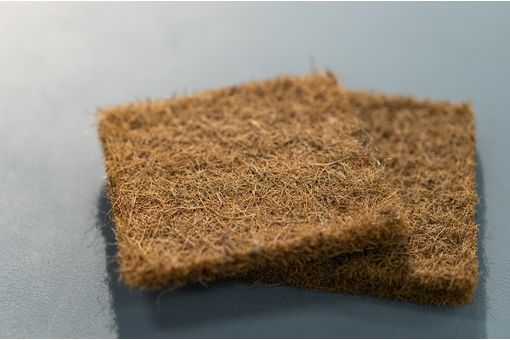Interviews
Researchers develop virus-resistant silkworm
20 Jul '10
2 min read
A virus-resistant transgenic silkworm has been developed for the first time in the world by the Sericulture Research Institute, Andhra Pradesh, CDFP&D and CSB under the Seri-Biotechnology Research Lab programme.
This silkworm would help in stabilizing silk yield levels by reducing uncertainties like viral outbreaks and this research has also helped in understanding the traits which induce silkworms to eat only mulberry leaves.
Fibre2fashion spoke exclusively to Dr Sharad Chandra, Director of Central Silk Board (CSB) to understand more about this unique virus-resistant transgenic silkworm. We began by asking him as to how the virus resistant silkworm was developed.
He replied by saying, “There are two methods adopted for the development of virus resistance in silkworms. First method is the marker assisted breeding programme where markers identified for nuclear polyhedrosis virus (NPV) are introgressed to desired bivoltine breed for making the susceptible silkworms breeds to NPV tolerance.
And second, transgenic silkworm developed by RNAi interference biotechnological method where virus multiplication will be suppressed in the silkworm gut & other organs. This transgenic silkworm was developed by our collaborators at CDFD, Hyderabad. At SBRL, breeding programme has been initiated where these transgenic genes are transferred to desired biovoltine breeds. Through this method susceptible silkworm can be made tolerant to viral diseases.”
Next we asked him to inform us on the advantages of developing virus resistant silkworms, to which he said, “The advantage of developing viral resistant silkworms is that the susceptible silkworms will become tolerant to viral diseases so that their survival rate, cocoon quantity, silk yield will increase. In turn farmer's income also will increase”.
To conclude this informative interview we asked him his views on this achievement, to which he informed by saying, “This is one of the systematic biotechnological methods for controlling the silkworm diseases, particularly NPV over the conventional methods of disinfection. It will increase the quantity and quality of silk cocoon and silk productivity”.
This silkworm would help in stabilizing silk yield levels by reducing uncertainties like viral outbreaks and this research has also helped in understanding the traits which induce silkworms to eat only mulberry leaves.
Fibre2fashion spoke exclusively to Dr Sharad Chandra, Director of Central Silk Board (CSB) to understand more about this unique virus-resistant transgenic silkworm. We began by asking him as to how the virus resistant silkworm was developed.
He replied by saying, “There are two methods adopted for the development of virus resistance in silkworms. First method is the marker assisted breeding programme where markers identified for nuclear polyhedrosis virus (NPV) are introgressed to desired bivoltine breed for making the susceptible silkworms breeds to NPV tolerance.
And second, transgenic silkworm developed by RNAi interference biotechnological method where virus multiplication will be suppressed in the silkworm gut & other organs. This transgenic silkworm was developed by our collaborators at CDFD, Hyderabad. At SBRL, breeding programme has been initiated where these transgenic genes are transferred to desired biovoltine breeds. Through this method susceptible silkworm can be made tolerant to viral diseases.”
Next we asked him to inform us on the advantages of developing virus resistant silkworms, to which he said, “The advantage of developing viral resistant silkworms is that the susceptible silkworms will become tolerant to viral diseases so that their survival rate, cocoon quantity, silk yield will increase. In turn farmer's income also will increase”.
To conclude this informative interview we asked him his views on this achievement, to which he informed by saying, “This is one of the systematic biotechnological methods for controlling the silkworm diseases, particularly NPV over the conventional methods of disinfection. It will increase the quantity and quality of silk cocoon and silk productivity”.
Fibre2fashion News Desk - India
Popular News
Leave your Comments
Editor’s Pick
Folker Stachetzki
Brother Internationale Industriemaschinen GmbH
Ritesh Dodhia
Dodhia Synthetics Limited
































-Ltd..jpg?tr=w-120,h-60,c-at_max,cm-pad_resize,bg-ffffff)





.jpg?tr=w-120,h-60,c-at_max,cm-pad_resize,bg-ffffff)
.jpg?tr=w-120,h-60,c-at_max,cm-pad_resize,bg-ffffff)






